Introduction to the Flavor characteristics of Alabica Coffee beans in Alpine Mountains of Yunnan Province
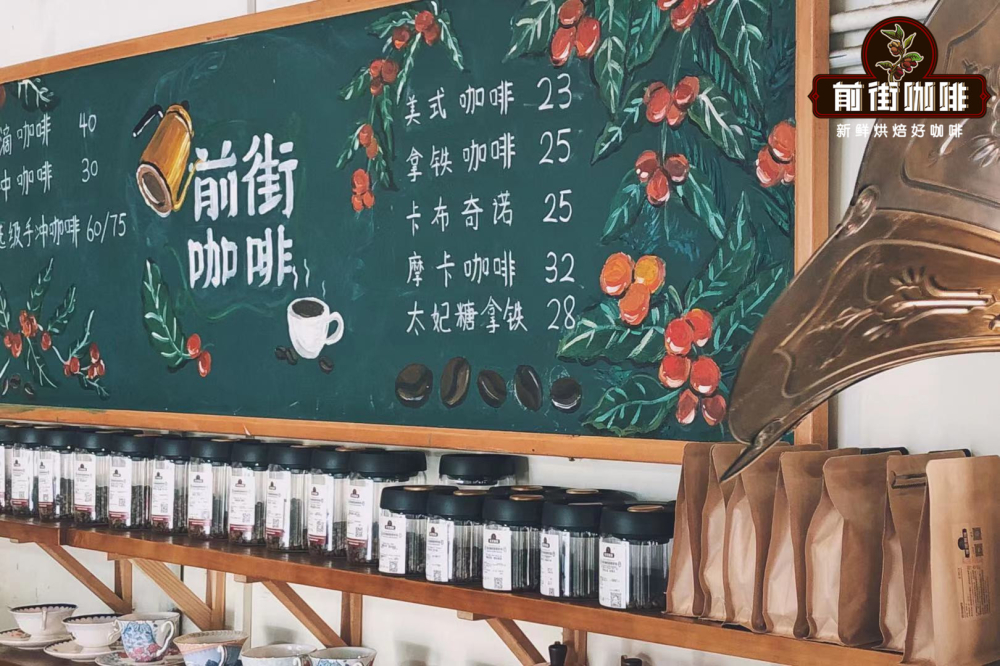
In the past, when we mentioned coffee, the first thing we thought of was well-known foreign producing areas such as Brazil, Colombia, Ethiopia and so on. With the development of domestic coffee industry, Yunnan coffee has gradually appeared in the purchase list of major coffee brands and become one of the necessary items for domestic and foreign chain coffee brands. Qianjie daily menu also has several Yunnan coffee beans for everyone to choose from, so it can be seen that Yunnan producing areas have slowly begun to join the ranks of boutique coffee.
When did coffee come to Yunnan, China?
Since 1904, when the French missionary Tian Deneng introduced the first coffee tree in Zhugula Village, Binchuan, Yunnan Province, there was the beginning of Yunnan coffee planting, so the bond between Yunnan and coffee has a history of a hundred years. The real planting for commercial purposes was in the 1950s, Qin Renchang, a famous botanist and professor of the Institute of Botany of the Chinese Academy of Sciences, identified red fruit as small seed coffee in the courtyard of Dai farmers in Luxi County, Dehong Prefecture. Under his suggestion, coffee seedlings were planted in Mangshi Forest Farm and Lujiangba in Baoshan City respectively, thus ushering in a new era of coffee research and production in New China.
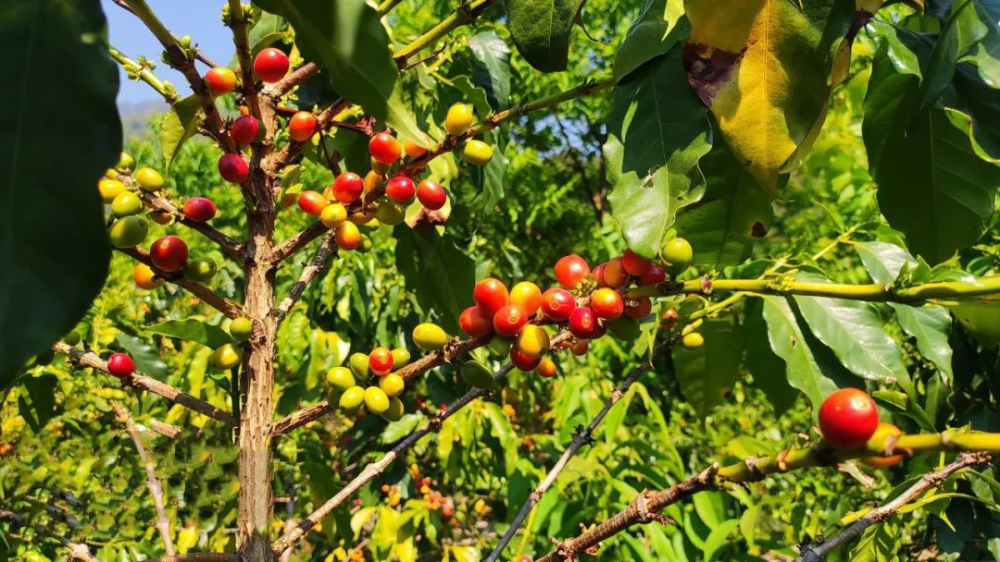
Yunnan coffee really entered the international market since Nestl é established a branch in China in 1988, which not only introduced the high-yield and disease-resistant varieties of Catimor, but also promised to use the American futures price to buy Yunnan coffee beans as raw materials. Subsequently, Starbucks, McDonnell and other brands have also set up factories in Yunnan to buy raw beans, these measures have further expanded the planting area of Yunnan coffee. Looking through the relevant materials in the front street, we learned that due to the lack of knowledge of coffee cultivation and rough production and processing methods, Yunnan coffee raw beans have been mostly used as raw materials for instant coffee for a long time, suffering from the constraints of the international futures price of coffee. If we want to get rid of these, it is bound to carry out industrial transformation and upgrading, and the high-quality production of coffee has become a new journey of coffee in Yunnan.
In recent years, with the advance of the coffee tide in China and the society's emphasis on rural economy and sustainable development, coffee people from all over the world have visited Yunnan. People continue to improve the quality of local coffee in the prevention and control of coffee diseases and insect pests, shading trees, soil and water conservation, planting altitude, as well as fresh fruit picking and treatment methods. Yunnan coffee has been gradually concerned and recognized. Compared with the past, people are willing to take the initiative to understand the "new producing area" of Yunnan, and many guests who drink coffee in Qianjie stores will also ask if there are beans from Yunnan, which shows that the development of coffee in Yunnan is constantly improving.
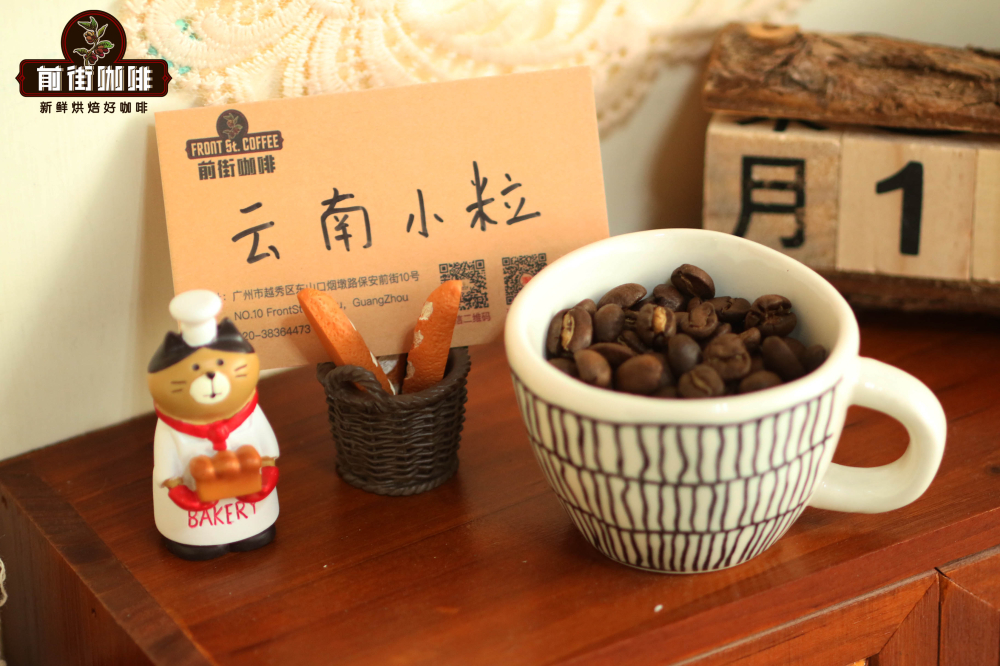
Where does Yunnan's fine coffee come from?
At present, coffee cultivation in Yunnan is distributed in eight regions, with six main producing areas: Pu'er, Baoshan, Dehong, Lincang, Nujiang and Xishuangbanna. These places have the natural conditions of low latitude, high altitude and large temperature difference between day and night, which makes Yunnan a golden growing area for producing high-quality coffee such as Arabica coffee.
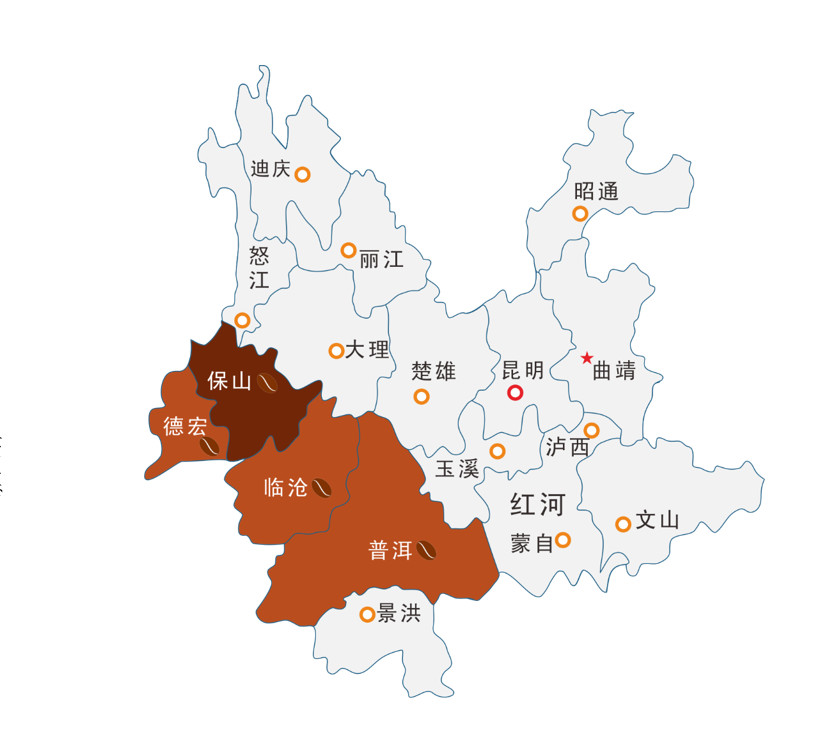
Coffee is usually planted on higher slopes, with rolling hills, fertile soil and plenty of sunshine, as well as concentrated precipitation brought by the rainy season, so that coffee trees can quickly integrate into the local soil. Yunnan Coffee has successively won five geographical indication protection products, such as "Baoshan small Grain Coffee", "Zhukula Coffee", "Dehong small Grain Coffee", "Pu'er small Grain Coffee" and "Simao Coffee". The Yunnan producing area representative in Qianjie chose Baoshan small grain coffee.
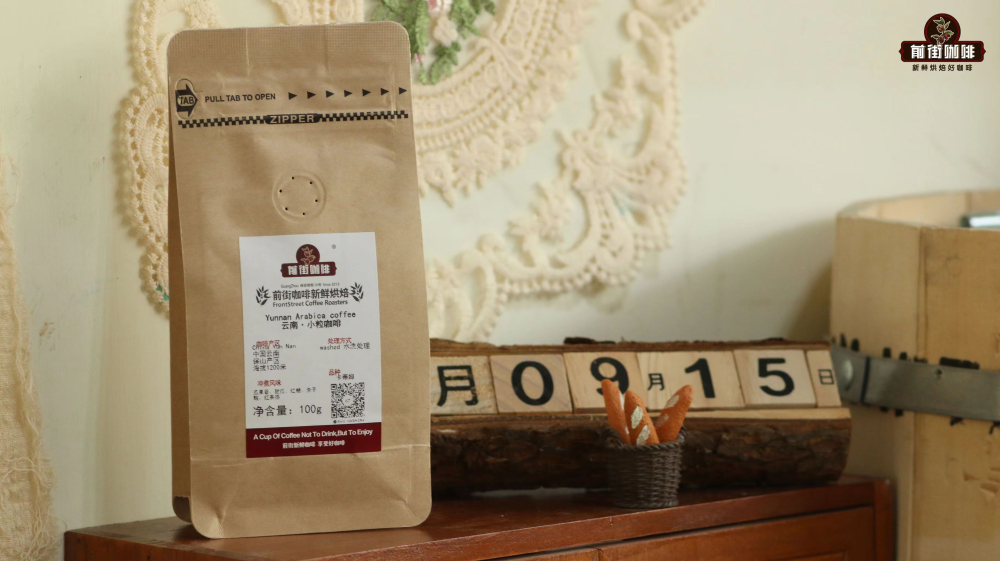
With the continuous expansion of international trade, the small-grain coffee of Lujiangba is even more famous. Baoshan is a low-latitude mountain subtropical monsoon climate, because it is located in the low-latitude plateau, the topography is complex, forming a three-dimensional climate of "one mountain is divided into four seasons, ten miles different days". The annual temperature difference is small, the daily temperature difference is large, the average annual temperature is 14 °C, the precipitation is abundant, dry and wet is distinct, the distribution is uneven, and the annual rainfall is 700mil 2100mm. In addition, it has a reasonable low rainfall, which brings great advantages to the production of coffee fruit and creates the unique return of Baoshan small-grain coffee.
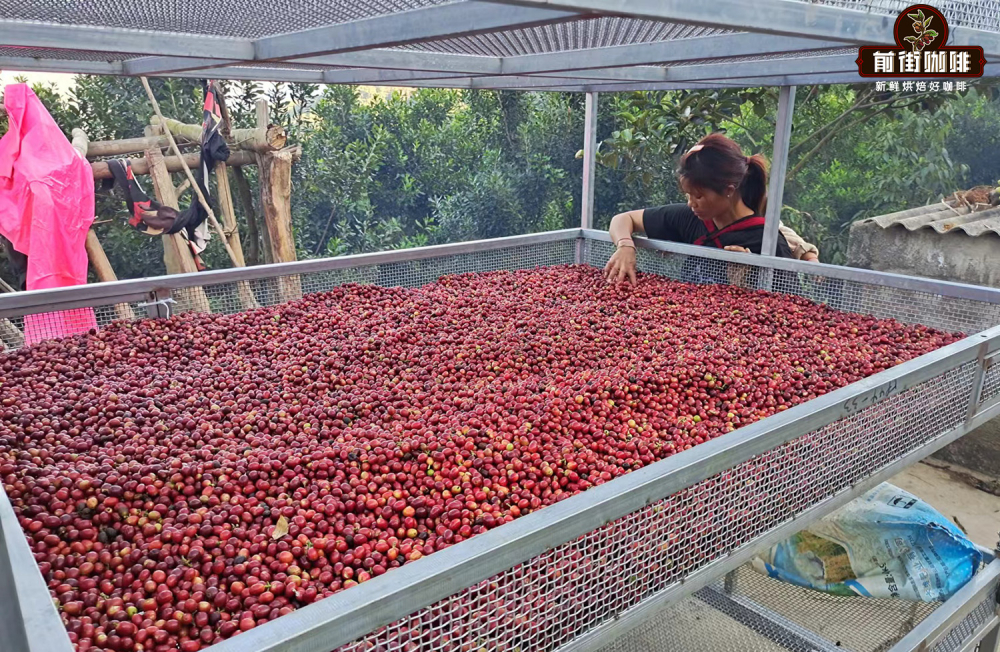
In addition, there is an exclusive Yunnan sun iron pickup coffee on the Qianjie bean list. Why is it exclusive? Because this kind of coffee is produced by my own estate in Qianjie. Qianjie established its own manor in Lincang in 2013, from site selection, seed selection, seedling breeding, planting, harvesting, treatment and baking to Qianjie, from which a lot of experience and knowledge were summed up. Qianjie specially selected the most primitive Arabica variety-iron pickup, and produced it in the natural treatment of the sun, named "Qianjie 2013", which was praised by many guests for its elegant and peaceful taste.

What are the flavor characteristics of Yunnan small grain coffee?
Dozens of coffee beans on the Qianjie bean list show different flavors, tonality and taste in different cooking methods, and Qianjie's favorite extraction method is hand flushing. Hand-made black coffee can feel the aroma of coffee beans, and by adjusting various brewing parameters, it can also bring out the different flavor characteristics of coffee, which is highly operable.
After many tests and comparisons in Qianjie, it is concluded that Yunnan small-grain coffee is not as sour as African coffee, or Indonesian coffee is thick and full-bodied, and its flavor is more neutral and balanced, that is, it has both sweet and sour taste. Therefore, Yunnan coffee in Qianjie is moderately roasted, highlighting the roasted aromas of chocolate and nuts while retaining part of the acid. Yunnan small grain grain beans washed from the cup test in Qianjie show the aroma of herbs, nuts, caramel, chocolate, brown sugar, sweet melons and fruits, and the sour quality of plums.
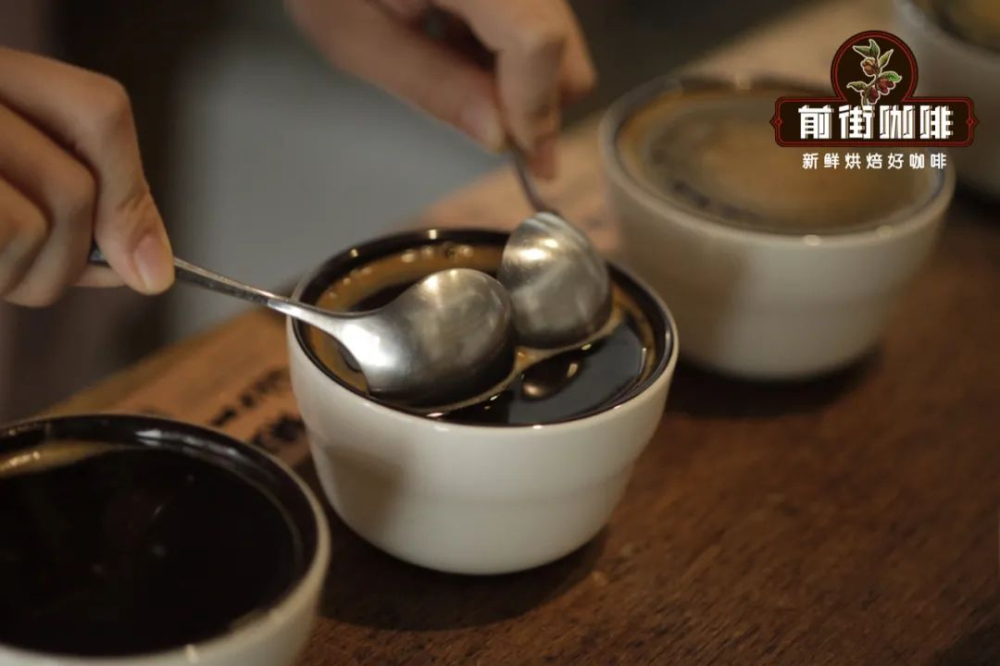
Before brewing, Qianjie will first confirm whether the coffee beans are fresh. If the coffee beans have been roasted for more than a month, Qianjie will not produce them. As coffee beans have the best taste stage after roasting, the aroma of coffee will accelerate with storage time, and it is difficult to restore the dissipated flavor in brewing. This is why Qianjie insists on delivering only freshly baked coffee within 5 days. Qianjie hopes that every guest can enjoy the most complete taste stage of the coffee beans.
Grinding degree and water temperature: precisely because the flavor attribute of Yunnan coffee is neutralized and balanced, too high warm water and too fine grinding degree can easily lead to excessive extraction of coffee, release too much bitter macromolecular flavor substances, and too low water temperature and too coarse grinding degree, on the contrary, it leads to insufficient extraction and coffee is easy to be tasteless. So Qianjie will choose medium water temperature and grinding degree, 90 degrees Celsius hot water for extraction, coffee powder thickness for the Chinese standard 20 sieve pass rate of 70%, stores EK43s- scale 10.5.
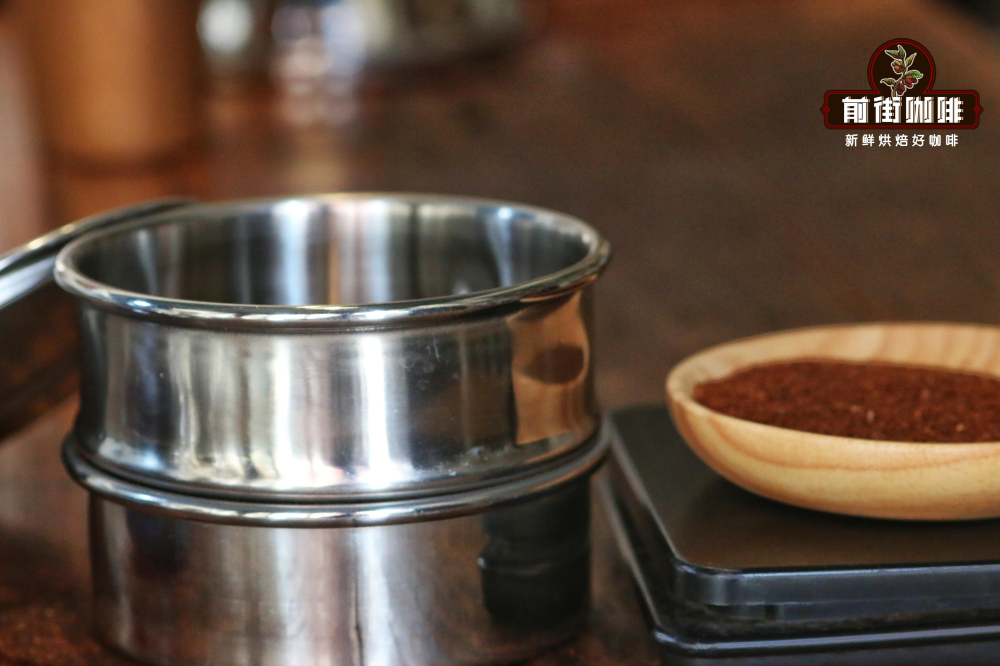
According to previous cooking experience, Qianjie suggests beginners to use three-stage water injection. Three-stage extraction is beneficial to dissolve flavor substances more fully, increase the level of taste, and avoid excessive extraction of coffee after soaking for too long.
Hand punch parameters of front street:
Filter cup: hario v60
Powder content: 15g
Water temperature: 90 degrees Celsius
Degree of grinding: pass rate of No. 20 screen 75%
Gouache ratio: 1:15
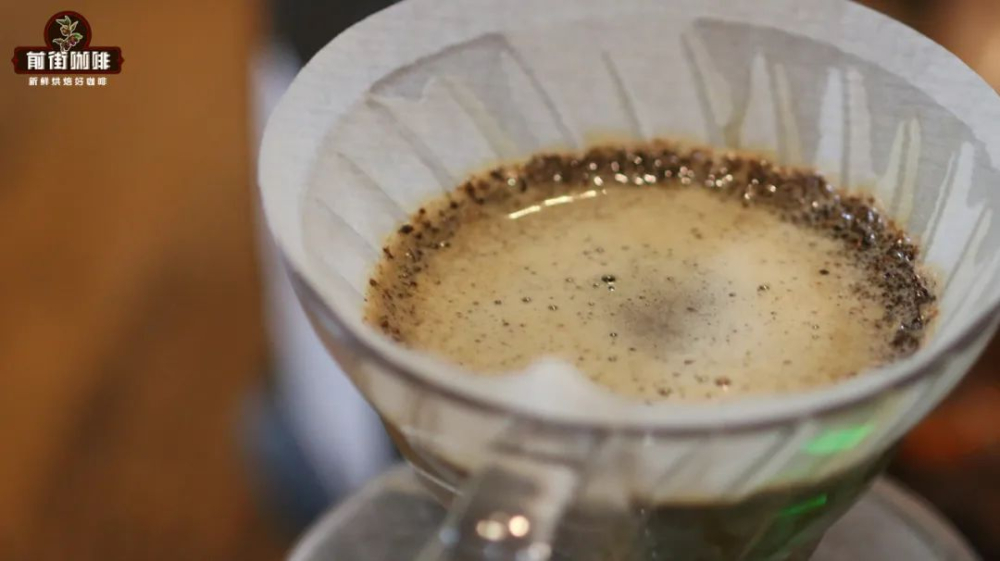
Three-stage water injection: wet the powder bed with twice as much water as coffee powder to form a drum and steam for 30s, then fill the small water from the inside to the outer circle to 125g, wait for the powder bed to drop to half of the filter cup, and continue to inject the same fine water into the third section to 225g, until all the coffee liquid has been filtered and remove the filter cup for about 2 minutes.
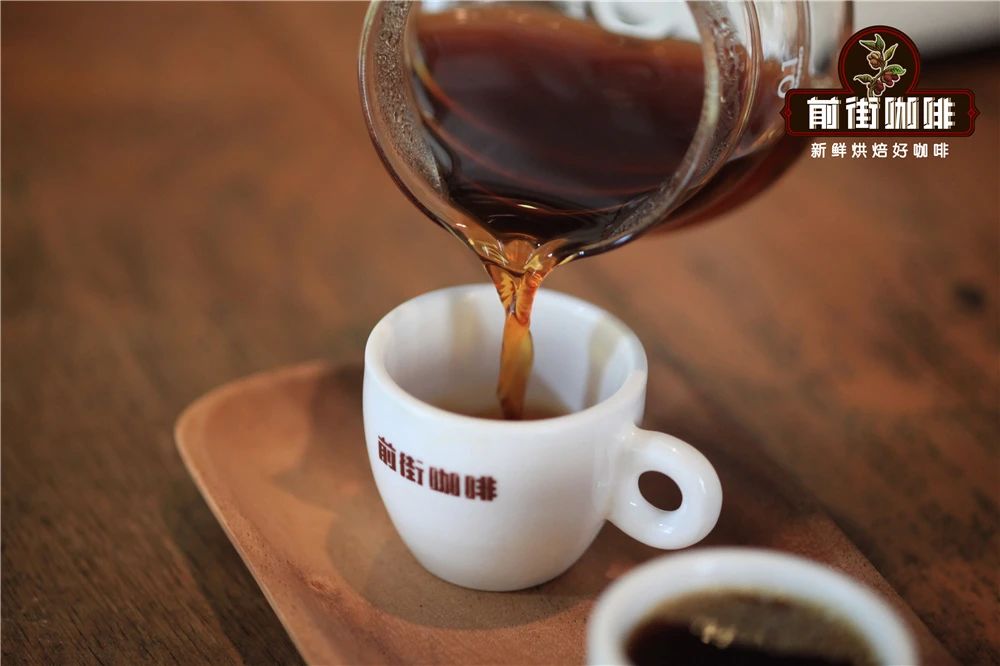
Professional coffee knowledge exchange more coffee bean information please follow the coffee workshop (Wechat official account cafe_style)
For more boutique coffee beans, please add private Qianjie coffee on Wechat. WeChat account: qjcoffeex
Important Notice :
前街咖啡 FrontStreet Coffee has moved to new addredd:
FrontStreet Coffee Address: 315,Donghua East Road,GuangZhou
Tel:020 38364473
- Prev
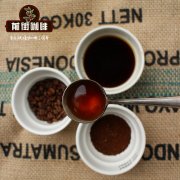
How about Yunnan coffee beans? Not bitter acid Yunnan where the best coffee beans growing area rising star
Professional coffee knowledge exchange More coffee bean information Please pay attention to coffee workshop (Weixin Official Accounts cafe_style) Qianjie-Yunnan Arabica coffee introduction Do you believe that in the mountains of southern China lies the beautiful Yunnan Province, where a large number of undervalued Arabica coffee beans grow. The average elevation of Pu 'er City is 2000 meters, where most of China's coffee beans are grown. 2
- Next

How to divide Yunnan coffee grade Yunnan katim coffee information bloodline is not pure enough ah
Professional coffee knowledge exchange More coffee bean information Please pay attention to coffee workshop (Weixin Official Accounts cafe_style) Front Street-Yunnan Arabica Coffee Introduction Although Yunnan coffee has been planted for many years, it is still not mature enough on the whole. The classification system is also relatively messy. 1, international common classification standards: according to the size of coffee beans, the use of round hole classification screen classification. international custom
Related
- Beginners will see the "Coffee pull flower" guide!
- What is the difference between ice blog purified milk and ordinary milk coffee?
- Why is the Philippines the largest producer of crops in Liberia?
- For coffee extraction, should the fine powder be retained?
- How does extracted espresso fill pressed powder? How much strength does it take to press the powder?
- How to make jasmine cold extract coffee? Is the jasmine + latte good?
- Will this little toy really make the coffee taste better? How does Lily Drip affect coffee extraction?
- Will the action of slapping the filter cup also affect coffee extraction?
- What's the difference between powder-to-water ratio and powder-to-liquid ratio?
- What is the Ethiopian local species? What does it have to do with Heirloom native species?

